 An interesting study that showed that when gut microbes are deprived of dietary fiber (their food) they start to eat the natural layer of mucus that lines the colon. (The colon is part of the large intestine). This is important because the colon's mucus layer normally acts as a barrier to pathogenic microbes. Yes, it was done in mice, but the researchers feel that this study accurately models what also happens in humans. Their conclusion: when the microbes in the gut don't get enough dietary fiber from plants (such as whole grains, fruits, vegetables, seeds, nuts), then the microbes feed on the colon's mucus layer, which results in inflammation and makes the colon more vulnerable to pathogenic (disease causing) microbes. This is what some people refer to as "leaky gut".
An interesting study that showed that when gut microbes are deprived of dietary fiber (their food) they start to eat the natural layer of mucus that lines the colon. (The colon is part of the large intestine). This is important because the colon's mucus layer normally acts as a barrier to pathogenic microbes. Yes, it was done in mice, but the researchers feel that this study accurately models what also happens in humans. Their conclusion: when the microbes in the gut don't get enough dietary fiber from plants (such as whole grains, fruits, vegetables, seeds, nuts), then the microbes feed on the colon's mucus layer, which results in inflammation and makes the colon more vulnerable to pathogenic (disease causing) microbes. This is what some people refer to as "leaky gut".
Research shows that changes in the diet (high fiber vs low fiber) quickly results in changes in the gut microbes in humans and rodents - so it's important to consistently eat a lot of a variety of plant fiber. Currently the recommended daily fiber intake for adults is for 28 to 35 grams (chart of some high fiber foods). They found that some bacteria strains flourished the best in low or no fiber conditions and it was these bacteria that were involved in breaking down the mucus layer. The research also showed that what are called "prebiotics" (purified forms of soluble fiber similar to what some processed foods and supplements contain) also resulted in thinning of the colon's mucus layer - they did not properly feed the gut microbes. From Medical Xpress:
High-fiber diet keeps gut microbes from eating colon's lining, protects against infection
It sounds like the plot of a 1950s science fiction movie: normal, helpful bacteria that begin to eat their host from within, because they don't get what they want. But new research shows that's exactly what happens when microbes inside the digestive system don't get the natural fiber that they rely on for food. Starved, they begin to munch on the natural layer of mucus that lines the gut, eroding it to the point where dangerous invading bacteria can infect the colon wall. In a new paper in Cell, an international team of researchers show the impact of fiber deprivation on the guts of specially raised mice. The mice were born and raised with no gut microbes of their own, then received a transplant of 14 bacteria that normally grow in the human gut.
The findings have implications for understanding not only the role of fiber in a normal diet, but also the potential of using fiber to counter the effects of digestive tract disorders. "The lesson we're learning from studying the interaction of fiber, gut microbes and the intestinal barrier system is that if you don't feed them, they can eat you," says Eric Martens, Ph.D., an associate professor of microbiology at the University of Michigan Medical School....Using U-M's special gnotobiotic, or germ-free, mouse facility, and advanced genetic techniques that allowed them to determine which bacteria were present and active under different conditions, they studied the impact of diets with different fiber content - and those with no fiber. They also infected some of the mice with a bacterial strain that does to mice what certain strains of Escherichia coli can do to humans - cause gut infections that lead to irritation, inflammation, diarrhea and more.
The result: the mucus layer stayed thick, and the infection didn't take full hold, in mice that received a diet that was about 15 percent fiber from minimally processed grains and plants. But when the researchers substituted a diet with no fiber in it, even for a few days, some of the microbes in their guts began to munch on the mucus.They also tried a diet that was rich in prebiotic fiber - purified forms of soluble fiber similar to what some processed foods and supplements currently contain. This diet resulted in the same erosion of the mucus layer as observed in the lack of fiber.
The researchers also saw that the mix of bacteria changed depending on what the mice were being fed, even day by day. Some species of bacteria in the transplanted microbiome were more common - meaning they had reproduced more - in low-fiber conditions, others in high-fiber conditions. And the four bacteria strains that flourished most in low-fiber and no-fiber conditions were the only ones that make enzymes that are capable of breaking down the long molecules called glycoproteins that make up the mucus layer.... Just like the mix of bacteria, the mix of enzymes changed depending on what the mice were being fed, with even occasional fiber deprivation leading to more production of mucus-degrading enzymes.
Images of the mucus layer, and the "goblet" cells of the colon wall that produce the mucus constantly, showed the layer was thinner the less fiber the mice received. While mucus is constantly being produced and degraded in a normal gut, the change in bacteria activity under the lowest-fiber conditions meant that the pace of eating was faster than the pace of production - almost like an overzealous harvesting of trees outpacing the planting of new ones.
When the researchers infected the mice with Citrobacter rodentium - the E. coli-like bacteria - they observed that these dangerous bacteria flourished more in the guts of mice fed a fiber-free diet. Many of those mice began to show signs of illness and lost weight. When the scientists looked at samples of their gut tissue, they saw not only a much thinner or even patchy mucus later - they also saw inflammation across a wide area. Mice that had received a fiber-rich diet before being infected also had some inflammation but across a much smaller area. [Original study]
 A thick mucus layer (green), generated by the cells of the colon's wall, provides protection against invading bacteria and other pathogens. This image of a mouse's colon shows the mucus (green) acting as a barrier for the "goblet" cells (blue) that produce it. Credit: University of Michigan
A thick mucus layer (green), generated by the cells of the colon's wall, provides protection against invading bacteria and other pathogens. This image of a mouse's colon shows the mucus (green) acting as a barrier for the "goblet" cells (blue) that produce it. Credit: University of Michigan

 Guidelines for how to prevent food allergies in children are changing. Until very recently, it was avoid, avoid, avoid exposing babies or young children to any potential allergens. Remember parents being advised that if an allergy to X (whether pets or food) runs in the family, then absolutely avoid exposing the child to the potential allergen? Well, recent research (
Guidelines for how to prevent food allergies in children are changing. Until very recently, it was avoid, avoid, avoid exposing babies or young children to any potential allergens. Remember parents being advised that if an allergy to X (whether pets or food) runs in the family, then absolutely avoid exposing the child to the potential allergen? Well, recent research ( Uh oh - once again a drug taken for a common problem (heartburn) is linked to an unexpected negative health effect (higher risk of strokes). Millions of Americans take proton pump inhibitors (PPIs) to treat acid reflux and heartburn. They are among the most prescribed drugs in the United States, are frequently taken for long periods of time, and are available over the counter. But according to preliminary research presented at a 2016 American Heart Association conference, these medications may also increase the risk of ischemic stroke. Ischemic strokes, which are the most common type of stroke, occur when a blood clot cuts off blood flow to the brain.
Uh oh - once again a drug taken for a common problem (heartburn) is linked to an unexpected negative health effect (higher risk of strokes). Millions of Americans take proton pump inhibitors (PPIs) to treat acid reflux and heartburn. They are among the most prescribed drugs in the United States, are frequently taken for long periods of time, and are available over the counter. But according to preliminary research presented at a 2016 American Heart Association conference, these medications may also increase the risk of ischemic stroke. Ischemic strokes, which are the most common type of stroke, occur when a blood clot cuts off blood flow to the brain.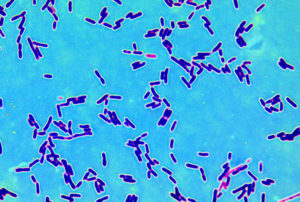 Interesting preliminary research that suggests that daily intake for 12 weeks of several beneficial bacteria species (Lactobacillus acidophilus, L. casei, L. fermentum, and Bifidobacterium bifidum) resulted in improved mental (cognitive) functioning in 52 people with Alzheimer's Disease. Could this be true - daily probiotics to improve mental functioning in those with Alzheimer's?
Interesting preliminary research that suggests that daily intake for 12 weeks of several beneficial bacteria species (Lactobacillus acidophilus, L. casei, L. fermentum, and Bifidobacterium bifidum) resulted in improved mental (cognitive) functioning in 52 people with Alzheimer's Disease. Could this be true - daily probiotics to improve mental functioning in those with Alzheimer's?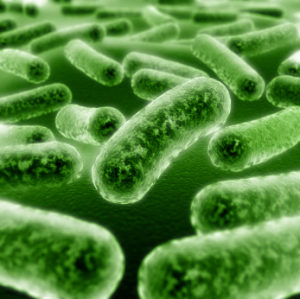 Could certain beneficial bacteria (probiotics) help prevent or deal with infections in burn wounds?
Could certain beneficial bacteria (probiotics) help prevent or deal with infections in burn wounds? 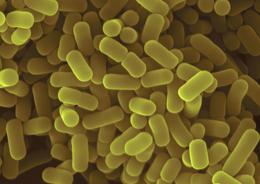 Lactobacillus plantarum Credit: Nature
Lactobacillus plantarum Credit: Nature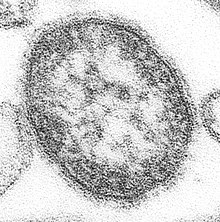 An electron micrograph of the measles virus.
An electron micrograph of the measles virus. 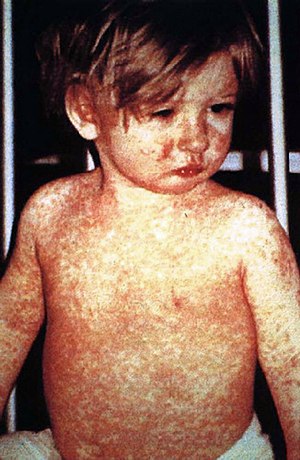 Child showing a 4-day measles rash.
Child showing a 4-day measles rash.  There are many posts on this site about the microbes within us (the microbiome) or around us, but the following article may be a real eye opener. Due to the permafrost melting (as in Alaska, northern Canada, Siberia, etc) from global warming, old infectious viruses and bacteria might be released from the thawing permafrost. This is what recently happened in Siberia, where melting permafrost released anthrax spores which killed 2300 reindeer and a 12 year old boy, and sickened at least 20 other people. From Scientific American:
There are many posts on this site about the microbes within us (the microbiome) or around us, but the following article may be a real eye opener. Due to the permafrost melting (as in Alaska, northern Canada, Siberia, etc) from global warming, old infectious viruses and bacteria might be released from the thawing permafrost. This is what recently happened in Siberia, where melting permafrost released anthrax spores which killed 2300 reindeer and a 12 year old boy, and sickened at least 20 other people. From Scientific American: Bacillus anthracis - Anthrax bacteria
Bacillus anthracis - Anthrax bacteria  Skin anthrax lesion on the neck
Skin anthrax lesion on the neck 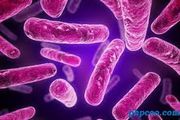 My
My